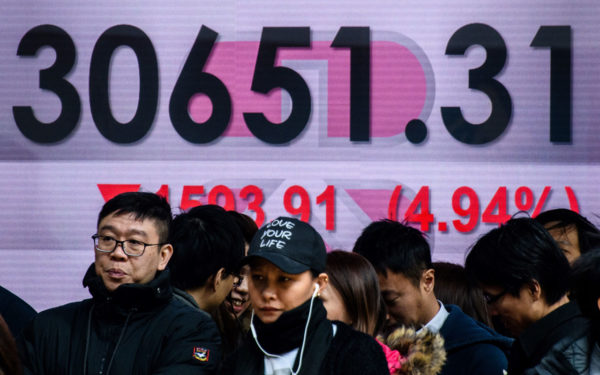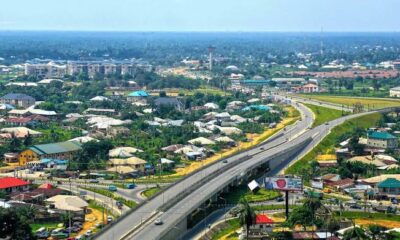Hong Kong stocks crumbled more than five percent on Tuesday, making it one of the worst performers on a painful day for Asian markets after a record-breaking collapse on Wall Street fuelled by concerns over rising US interest rates.
The Hang Seng Index dived 5.12 percent, or 1,649.80 points, to end 30,595.42 — its biggest close since the China-fuelled sell-off in August 2015.
The Shanghai Composite Index lost 3.35 percent, or 116.85 points, to 3,370.65 while the Shenzhen Composite Index, which tracks stocks on China’s second exchange, plunged 4.44 percent, or 80.21 points, to 1,726.09.
The HSI last month hit a series of records — hitting an all-time high of 33,484 on January 29 — as traders rode a wave of global euphoria following Donald Trump’s huge US tax cuts, strong earnings and optimism for the world economy.
The gains were also boosted by a flood of cash from mainland Chinese investors, attracted by cheaper valuations than at home, taking advantage of a cross-border stocks connect.
But the past week has seen the yield on US 10-year benchmark Treasury bills — a key guide for global rates — hit a four-year high and a strong US jobs report that also showed rising wage growth.
This sparked worries inflation would power higher, forcing the Federal Reserve to lift borrowing costs.
The losses Tuesday were the worst since August 2015, when a yuan devaluation by Beijing sparked concerns about the Chinese economy.
Still, some analysts were upbeat. “I actually think there’s buying opportunities, maybe not today, but through this week as this sell-off exacerbates,” Sean Fenton, a portfolio manager at Tribeca Investment Partners in Sydney, told Bloomberg News.
– Energy firms tank –
Energy firms were some of the biggest losers as oil prices sank on the back of the global asset sell-off, while traders have also been spooked by news that US firms had brought more rigs online, offsetting production caps by OPEC and Russia.
At the end of the day CNOOC was down 5.17 percent at HK$11.74 while PetroChina had plunged 5.83 percent to HK$5.81 and Sinopec dived 4.59 percent to HK$6.45.
Tech companies were also handed a beating following another hammering for US titans Apple and Google parent Alphabet after they unveiled disappointing earnings reports.
AAC Technologies plunged 6.60 percent to HK$137.30 and Tencent was 7.03 percent down at HK$410.00.
Among other firms HSBC tanked 3.32 percent to HK$80.10 and Ping An Insurance was off 5.96 percent at HK$84.35.
While Shanghai avoided being dragged into a worldwide sell-off on Monday, it took a hit Tuesday, meaning it has lost about five percent since hitting two-year highs last month.
“Investor sentiment was largely affected by the slump overnight on Wall Street, which caused big selling pressure in China,” said Li Daxiao, an analyst with Yingda Securities.
China’s government, still smarting from a dizzying 2015 stock rise and crash followed by a moribund 2016, has taken increasing steps over the past year to steady the nation’s often volatile share markets.
Li said “we can’t exclude the possibility” that authorities played a role in helping limit China’s share losses on Tuesday.
Shanghai shares ended higher on Monday, bucking hefty selling elsewhere.
“China markets usually are independent from global markets, so investors do not need to worry too much,” Li said.
Insurance companies were among the biggest losers in Shanghai. Ping An Insurance gave up 2.56 percent to 73.77 yuan and China Life Insurance dropped 2.85 percent to 31.04 yuan.
Banking giant ICBC lost 2.32 percent to 7.57 yuan and China Construction Bank retreated 3.98 percent to 9.40 yuan.




















































